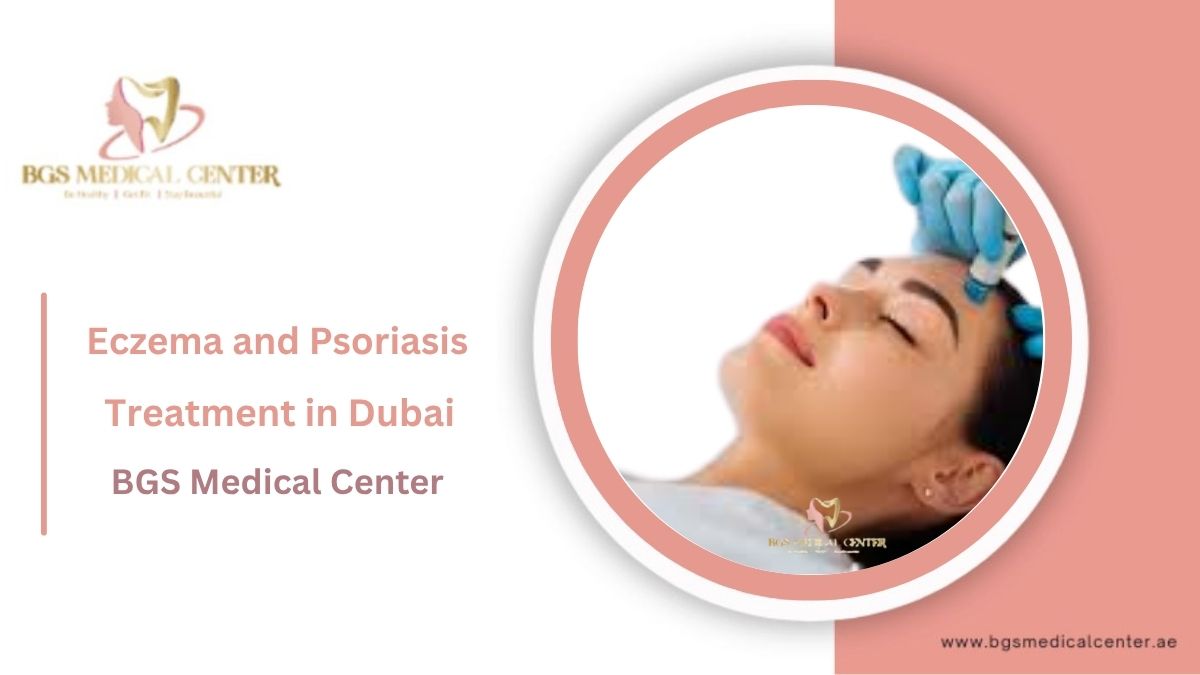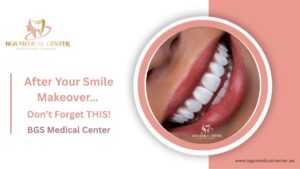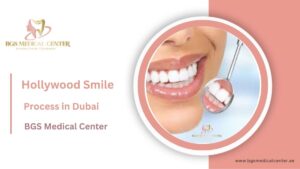Dubai’s dry heat, constant air conditioning, and year-round sunlight can make chronic skin conditions like eczema and psoriasis more difficult to manage. Many residents experience flare-ups, itching, and irritation that worsen during temperature changes or after long sun exposure.
The good news? With proper diagnosis and tailored care, eczema and psoriasis can be controlled effectively, even in the desert climate of the UAE. DHA-licensed dermatologists use advanced therapies and medical skincare designed specifically for dry, sensitive, and inflamed skin.
In this guide, you’ll learn what triggers eczema and psoriasis in Dubai, how dermatologists manage them, and the climate-specific skin care steps you can follow to reduce flare-ups year-round.
Why Eczema and Psoriasis Flare Up in Dubai’s Climate
Dubai’s desert weather combines extreme heat, low humidity, and frequent air conditioning, which can disrupt the skin’s natural barrier.
Key climate triggers for eczema and psoriasis:
- Dry air: reduces moisture and weakens the skin barrier.
- Sudden temperature shifts: moving from hot outdoors to cold indoor air triggers inflammation.
- UV exposure: excessive sun can dry out the skin, causing irritation.
- Sweating and heat: can cause itching and worsen eczema patches.
How Do Dermatologists Diagnose and Treat Eczema in Dubai?
At your eczema consultation,, the dermatologist will assess your:
1. Skin type and hydration level (using dermatoscopic evaluation).
2. Trigger factors (heat, detergents, fabrics, or stress).
3. Severity of inflammation and affected areas.
Eczema Treatment Options in Dubai:
- Topical corticosteroids: reduce inflammation during flare-ups.
- Moisturizing therapy: medical-grade emollients to rebuild the barrier.
- Antihistamines: relieve itching and redness.
- Phototherapy: controlled UV exposure helps chronic eczema.
- Biologic therapies: for severe eczema unresponsive to creams.
Dubai dermatologists often combine these with moisturizing in dry heat routines to prevent recurrence.
How Is Psoriasis Managed in UAE Conditions?
Psoriasis, an autoimmune skin condition, reacts strongly to environmental stress. In Dubai, flare-ups are often triggered by dryness, sunlight imbalance, and lifestyle factors.
Psoriasis Treatment Options:
- Topical treatments: vitamin D analogues, coal tar, or medicated ointments.
- Phototherapy: narrowband UVB light to slow cell turnover.
- Systemic medications: for moderate to severe psoriasis.
- Lifestyle adjustments: hydration, sun protection, and stress control.
“The challenge in Dubai is balancing sun exposure and skin protection,” explains Dr. Mohammed Hassan, Specialist Dermatologist at BGS Medical Center Deira. “Controlled sunlight can help psoriasis, but excessive heat or dryness often worsens it. Personalized treatment makes all the difference.”
Daily Skin Care Tips for Eczema and Psoriasis in Hot, Dry Climates
Proper daily care is essential for maintaining long-term control. Dermatologists in Dubai recommend:
- Moisturize immediately after bathing to trap hydration.
- Use fragrance-free, gentle cleansers.
- Avoid long, hot showers that strip skin oils.
- Choose cotton or breathable fabrics to reduce irritation.
- Apply SPF 50+ sunscreen before going outdoors.
- Avoid harsh exfoliation or strong acids.
Hydration and barrier protection are key, both for eczema-prone and psoriatic skin.
Can Climate Change Worsen Chronic Skin Conditions?
Yes. Fluctuating humidity and temperature changes increase transepidermal water loss (TEWL), making the skin more reactive.
Dubai residents often report flare-ups during:
- Seasonal transitions (April–May and October–November).
- Long exposure to dry, cold air indoors.
- Stress and lack of sleep.
Your dermatologist can help adjust your skincare routine to align with Dubai’s seasons. For advanced prevention strategies, read our upcoming post on moisturizing in dry heat.
When to See a Dermatologist for Eczema or Psoriasis
You should schedule a consultation if you experience:
- Persistent itching, burning, or scaling.
- Red, thickened patches that don’t improve with moisturizers.
- Skin cracks, bleeding, or signs of infection.
- Flare-ups that affect your daily comfort or sleep.
Early intervention prevents long-term complications and reduces the need for stronger medication.
Conclusion
Dubai’s desert climate can be challenging, but with expert care, eczema and psoriasis can be controlled effectively. At BGS Medical Center, our dermatologists specialize in chronic skin condition treatment designed for the UAE’s unique weather and patient lifestyles.
FAQs
What is the difference between eczema and psoriasis?
Eczema and psoriasis may look similar, but they’re very different skin conditions. Eczema is often caused by environmental or allergic triggers, leading to itching and dryness. Psoriasis, on the other hand, is an autoimmune condition that speeds up skin cell turnover, creating thick, scaly patches. Both can flare in Dubai’s climate due to dryness and temperature shifts. You can discover more about these concerns in our detailed inflammatory skin conditions guide, which explains their causes, symptoms, and effective treatment options.
Can Dubai’s hot and dry climate make eczema or psoriasis worse?
Yes. The desert heat, sweating, and indoor air conditioning can all worsen inflammation. Sudden temperature changes, like stepping from outdoors into AC, often trigger flare-ups. Dermatologists recommend daily hydration, barrier repair creams, and DHA-approved moisturizers to control dryness. Read related advice in climate triggers for eczema.
Is eczema treatment safe in Dubai?
Absolutely. DHA-licensed dermatology clinics in Dubai, such as BGS Medical Center, provide clinically proven and FDA-approved treatments for eczema and psoriasis. Each therapy is tailored to your skin sensitivity, age, and condition severity to ensure effective results. With a strong focus on safety and comfort, the center offers comprehensive eczema consultation in Dubai to help patients receive the most suitable and personalized care for their skin.
Can swimming or beach exposure trigger eczema?
Yes, for some patients, chlorine and seawater can irritate dry or cracked skin. However, you can still swim safely by applying a protective emollient barrier before entering the water and rinsing off gently afterward. Follow up with a fragrance-free moisturizer to prevent post-swim dryness. See more tips in our article on moisturizing in dry heat.
How often should I moisturize if I live in Dubai?
At least twice daily, ideally after bathing and before bed. Use rich, fragrance-free creams with ceramides, shea butter, or hyaluronic acid. Dubai’s low humidity means lighter lotions aren’t enough; thicker emollients work better for maintaining your skin barrier. Learn about climate-specific skin care BGS plans designed for Dubai’s weather.
Does stress really affect eczema and psoriasis?
Yes. Stress triggers hormone changes that increase inflammation, often causing or worsening flare-ups. In Dubai’s fast-paced lifestyle, dermatologists recommend pairing medical treatment with relaxation methods such as deep breathing, hydration, and better sleep routines to keep symptoms under control.
What is the best eczema treatment in Dubai’s desert climate?
The most effective treatment combines medical moisturizers, topical therapies, and light-based options under dermatologist supervision. At BGS Medical Center, specialists customize eczema treatment for Dubai’s weather, focusing on long-term control, comfort, and hydration. Schedule your eczema consultation at BGS Medical Center for a complete care plan.
Disclaimer
This article is for educational purposes only. It does not replace medical advice. All treatments must be done by DHA-licensed dermatologists. For care and evaluation, contact BGS Medical Center, Dubai.





